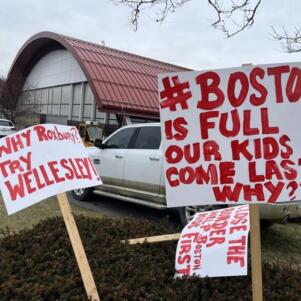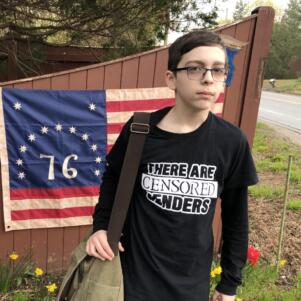Secret Recordings Ruling Makes Massachusetts Malefactors Safe from Project Veritas … For Now
By Evan Lips | September 18, 2017, 15:34 EDT
BOSTON — Efforts by members of the undercover reporting outfit Project Veritas to unleash their brand of guerrilla journalism on the politicians, activists, and movers-and-shakers that dominate Massachusetts were dealt a serious blow in court earlier this month.
Undercover news outlet Project Veritas Action Fund sued Suffolk County District Attorney Daniel Conley in federal court in March 2016 in an effort to overturn the Bay State’s two-party recording law, and on September 7, U.S. District Court Judge Patti B. Saris ruled in favor of the state’s motion to dismiss on the grounds that Project Veritas “has not alleged sufficient immediacy, reality, or hardship to warrant judicial relief both as a constitutional or prudential matter.”
Attorneys representing the fund had previously argued that the state’s current recording laws violate free speech. Saris, however, ruled that the case could not continue as “the law requires a plausible showing of true intent to investigate that has been chilled.”
State wiretapping laws call for fines of up to $10,000 and up to five years in prison for the crime of creating secret recordings.
Saris sided with the state’s motion to dismiss the lawsuit on “ripeness grounds,” referring to previous case law that established precedents for immediacy. Attorneys for Project Veritas had previously indicated that the news outfit intended to launch an undercover probe investigating Boston’s status as a so-called sanctuary city. Lawyers from Attorney General Maura Healey’s office countered that Project Veritas’s complaint, specifically that the organization has been restricted from conducting its investigation due to the state’s recording laws, lacked ripeness.
Project Veritas, the state argued, “has not pled the specific locations where it would make those recordings, how it would make them (except for surreptitiously), the content that it would capture, or whom it would record.”
Saris agreed.
“Project Veritas simply dashed off a possible investigation into sanctuary cities in Suffolk County to claim its First Amendment activities were chilled,” Saris wrote. “The ripeness burden is not high but it is not nonexistent even in the area of First Amendment protection.”
Reached this week, an attorney representing Project Veritas described the ripeness claim as a “dastardly argument.”
“You really believe Project Veritas would not launch this kind of investigation in Boston if it weren’t for the punishment being a felony and five years in prison?” questioned Steven R. Klein, a Virginia-based attorney who represented the news outfit. “Honestly I read her opinion and I’m now quite concerned that goalposts are moving.
“In order to establish ripeness we would have had to blow the lid off of how Project Veritas was going to investigate the story.”
In a last-ditch effort to effort to stave off a dismissal, Klein submitted a supplemental complaint arguing that the state’s recording laws prevented Project Veritas from conducting an undercover investigation into the events leading up to and during last month’s free speech rally on the Common.
“But for the unequivocal ban on secret recording, journalists would have attended the event and secretly recorded public officials executing their duties as they related to attendees,” Project Veritas argued.
According to Klein, “it took literally less than 10 minutes” for Saris to dismiss the supplemental complaint.
As for the ripeness argument, Klein said the claim “asks Project Veritas to kind of lie to the court.”
“It almost requires us to make up a phony story outlining how they [Project Veritas] intend to conduct their investigation,” he added.
Klein said Project Veritas is still weighing what its next step will be.
“The trouble is if we appeal we’ll just end up re-arguing this ripeness thing, and then we’ll be right back in Judge Saris’s courtroom,” he said. “That’s where this frustration is.
“The loss of First Amendment freedoms even for a momentary period of time constitutes irreparable harm, and what we have in Massachusetts is the most restrictive secret recording law in the country.”
Klein added that Project Veritas “is not going away.”
“Whether it’s government corruption or private malfeasance, there are so many things in Suffolk County and Massachusetts that would benefit from their investigations,” he said.











